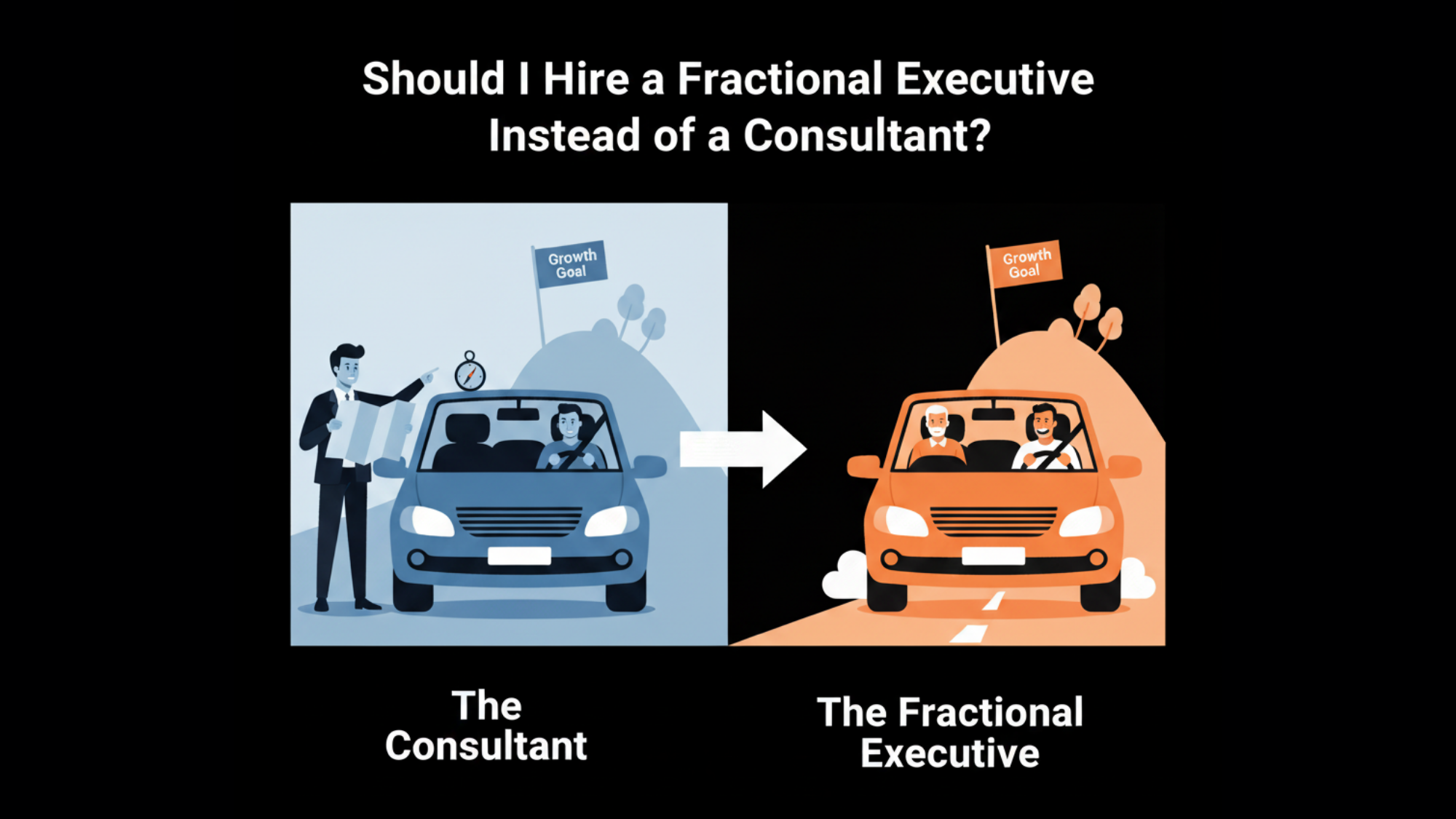Introduction: The Growth Dilemma Every Business Faces
If you’re leading a growing company, you’ve likely asked yourself: Do I need a consultant to guide me, or should I hire a fractional executive who can roll up their sleeves and lead? Both options promise expertise, but the scope, impact, and outcomes can be dramatically different. Understanding these differences can save you wasted spend and accelerate your business growth.
At NeoGig, we help companies navigate these crossroads every day. Let’s break down when to hire a consultant and when to bring in a fractional executive.
Consultant vs. Fractional Executive: What’s the Difference?
Consultant:
- Provides advice, frameworks, and recommendations
- Works on specific projects or analyses
- Typically external, not embedded in your team
- Ideal for diagnosing problems or providing market insights
Fractional Executive:
- A seasoned leader (CMO, CFO, COO, CIO, etc.) working part-time or project-based
- Provides hands-on leadership and decision-making authority
- Becomes embedded in your team and culture
- Ideal for executing strategies, not just designing them

When to Hire a Consultant
A consultant is best when you:
- Need an external audit of your strategy, finances, or operations
- Require industry benchmarking or research
- Want short-term input on a specific challenge
- Are looking for frameworks but plan to implement with your own team
Example: A retail company hires a consultant to assess why store foot traffic is declining and to recommend strategic options.
When to Hire a Fractional Executive
A fractional executive is best when you:
- Need leadership to implement strategies, not just design them
- Lack senior expertise in-house (e.g., no CMO but need marketing leadership)
- Want ongoing accountability and measurable results
- Are scaling fast and need immediate executive horsepower
Example: A SaaS company hires a fractional CMO to lead demand generation, oversee campaigns, and mentor the marketing team while keeping costs lower than a full-time hire.
Comparing the Two: Consultant vs. Fractional Executive
| Factor | Consultant | Fractional Executive |
|---|---|---|
| Role | Advisor, strategist | Leader, operator, decision-maker |
| Engagement | Project-based | Part-time, project, or ongoing |
| Integration | External | Embedded in team |
| Accountability | Recommends | Executes and owns outcomes |
| Best For | Insights, audits, research | Growth, scaling, operational execution |
Cost Considerations: Where the Value Lies
- Consultants often charge by the project or hour. Costs can be high for strategy decks and reports but may not include execution.
- Fractional Executives may charge a monthly retainer or hourly fee. While ongoing, their embedded role ensures that strategies turn into real-world results.
Hiring a fractional executive is often more cost-effective if your main need is not just advice, but sustained leadership and growth impact.
Scenarios to Guide Your Decision
- Choose a Consultant If: You want a market-entry analysis or a one-time strategy review.
- Choose a Fractional Executive If: You need someone to drive revenue growth, rebuild a sales team, or implement a digital transformation.

FAQs
1. What is the main difference between a consultant and a fractional executive?
A consultant provides external advice and frameworks, while a fractional executive takes on a leadership role inside your business to execute strategies.
2. Is hiring a fractional executive more expensive than a consultant?
Not necessarily. Consultants often bill high hourly rates. Fractional executives charge ongoing fees, but their embedded role often yields higher ROI.
3. Can I hire both a consultant and a fractional executive?
Yes. Some businesses hire consultants for benchmarking and strategy, then bring in a fractional executive to execute the plan.
4. How do I know if I need a fractional executive?
If your business lacks in-house leadership and you need immediate execution power to hit growth goals, a fractional executive is the right choice.
5. What roles can fractional executives fill?
Fractional CMOs, CFOs, COOs, CIOs, and CHROs are common — each bringing high-level expertise without the full-time cost.
Conclusion: Clarity for Smarter Growth
The decision between hiring a consultant and a fractional executive comes down to whether you need advice or execution. Consultants provide valuable insights, but fractional executives deliver results by embedding themselves into your team.
👉 If you’re ready to explore how a fractional executive could help your business scale, book a discovery call with NeoGig.







